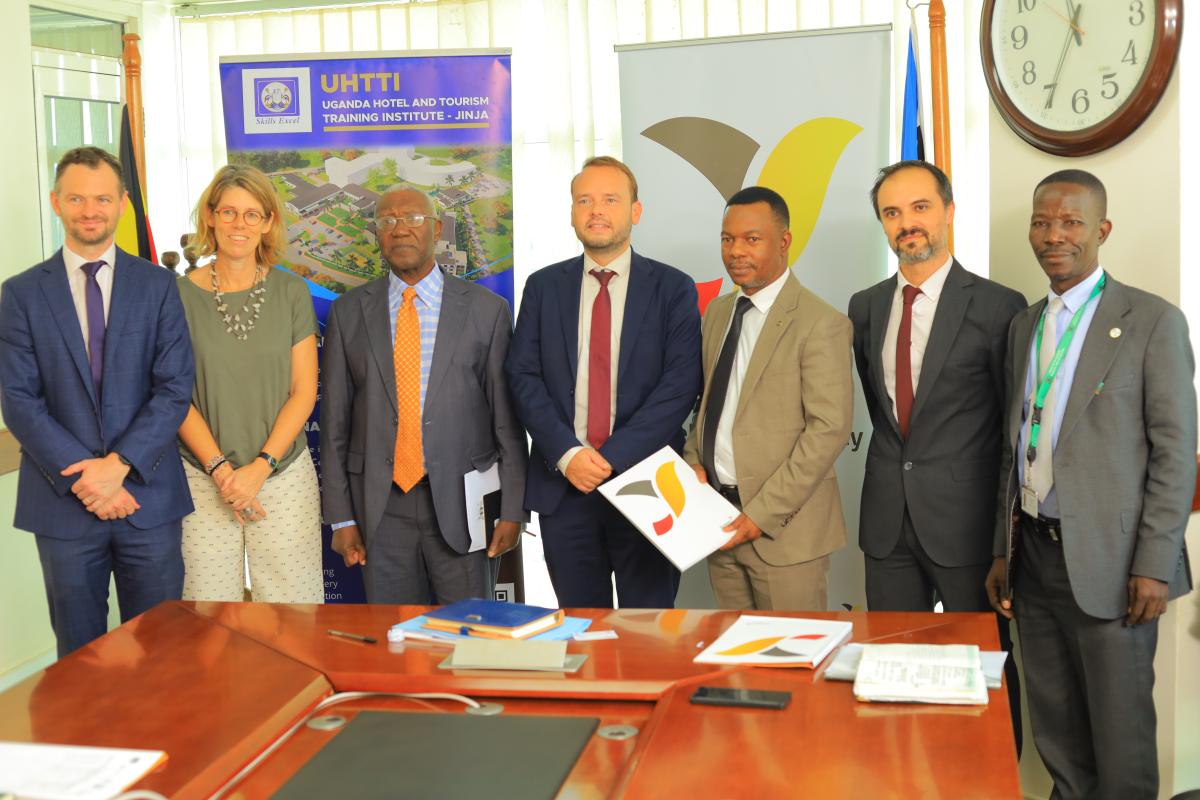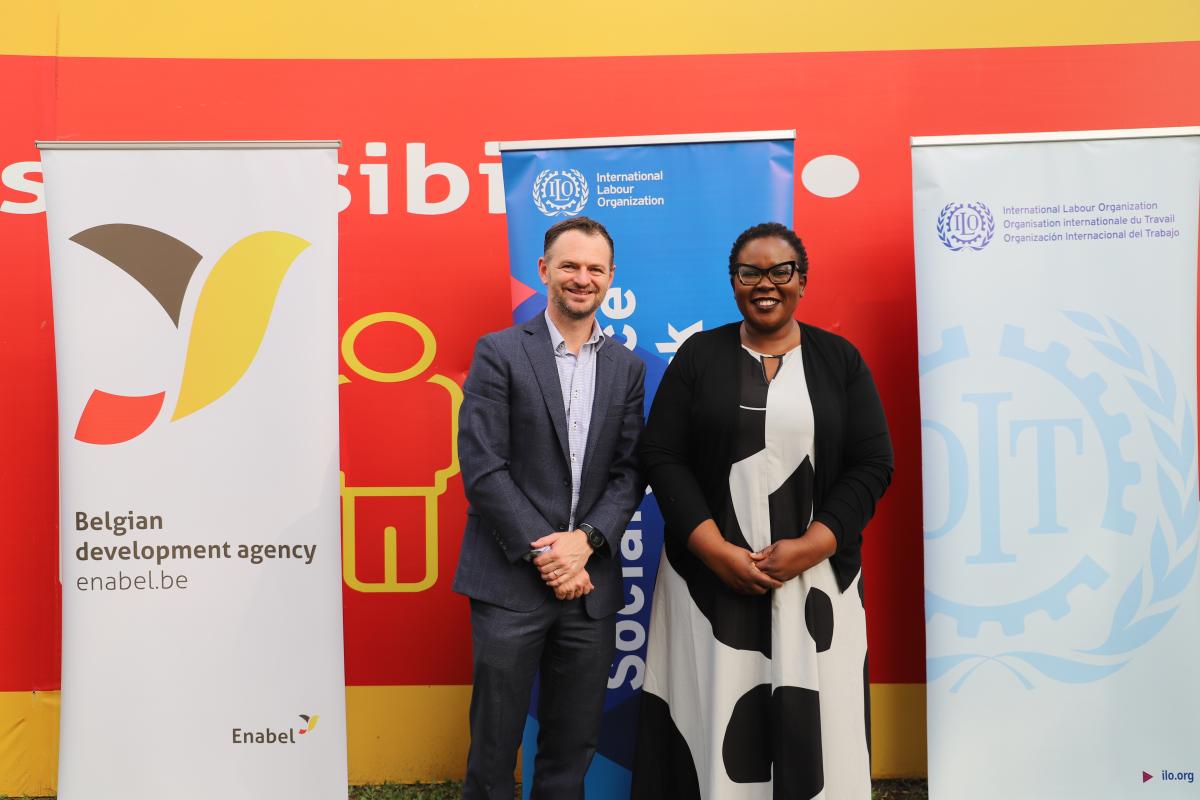Search
Viewing 345 to 360 of 3126 news
-
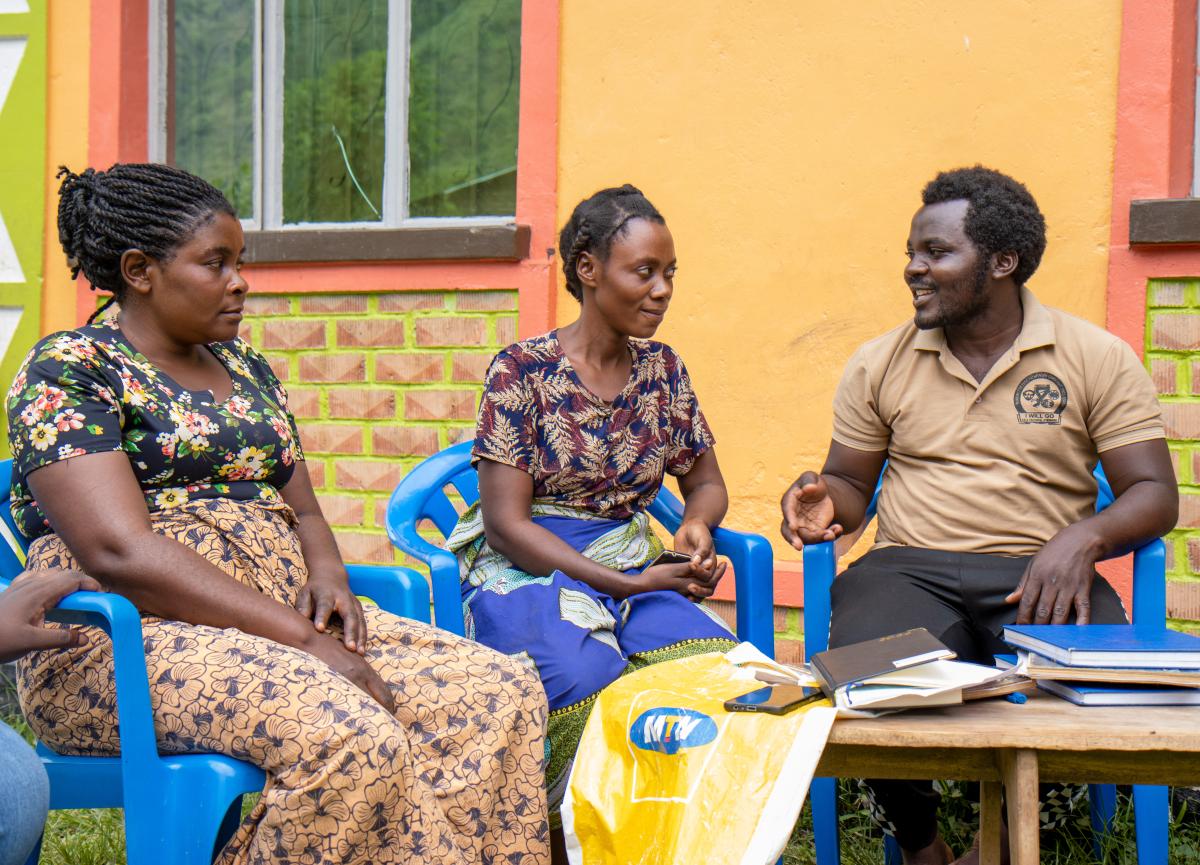
Mother determined to achieve financial security for health in Uganda
John CANDIGA | 10/06/2025
In Uganda’s Ntoroko district, Bweramule Sub-County, a young mother is rewriting her family’s future through saving for health. Yoles Babubema, a 24-year-old expectant mother, knows the challenges that come along with unexpected medical expenses. Having undergone three C-sections, she has faced the difficult reality of struggling to afford quality healthcare. However, she is determined to change that this time. Yoles is a proud member of Basambo United Group, a Village Savings and Loans Association group that is being supported by ‘ambassadors’ trained by Enabel to build the capacity of community micro-finance groups on financial management and to embrace saving for health among their members. When the Basambo United Group was formed in April 2023, Yoles Babulema was among the first 35 members who believed in its mission: to improve household incomes and bring essential health services closer to the community through sponsoring outreaches. Despite her enthusiasm, Yoles was unable to start saving for health immediately when the initiative took off in October 2023. “After the training, I loved the idea, but I simply didn’t have the money to start saving right away,” she recalls. Two months later, in December, she made her first health savings contribution—1,000 UGX, and 6 months later, she managed to save 80,000 UGX. Her goal was to save 300,000 UGX before her delivery to avoid the financial hardship she endured in the past. “When I had the last C-section last time, we had to sell land and take out a loan just to cover the medical costs,” she says. The emergency referral to Fort Portal Regional Referral Hospital for specialized care left her family with an 800,000 UGX loan and a staggering 20% interest. Determined not to relive that struggle, Yoles is now taking proactive steps. In addition to her savings, she has invested in an annual community health insurance plan introduced by Basambo United Group. For just 50,000 UGX per year, group members can receive treatment at Masindi Medical Center, a private health facility within reach. This initiative has made accessing antenatal services more convenient and affordable for her. “It’s a short walk away, so I don’t have to go to the government facility all the time, which can be expensive,” she explains. To boost her health savings in the group, Yoles has increased her weekly contribution to 2,000 UGX. As a farmer and occasional produce retailer at Masindi trading center, she carefully balances her income to ensure she meets her weekly savings goals. By planning for her medical services, Yoles Babubema is not only securing her health but also paving the way for a better future for her children. She wants to ensure that she does not get into high-interest rate debts again, but rather, a safe and prepared journey into motherhood by embracing saving for health through her Village Savings and Loans Association.
-
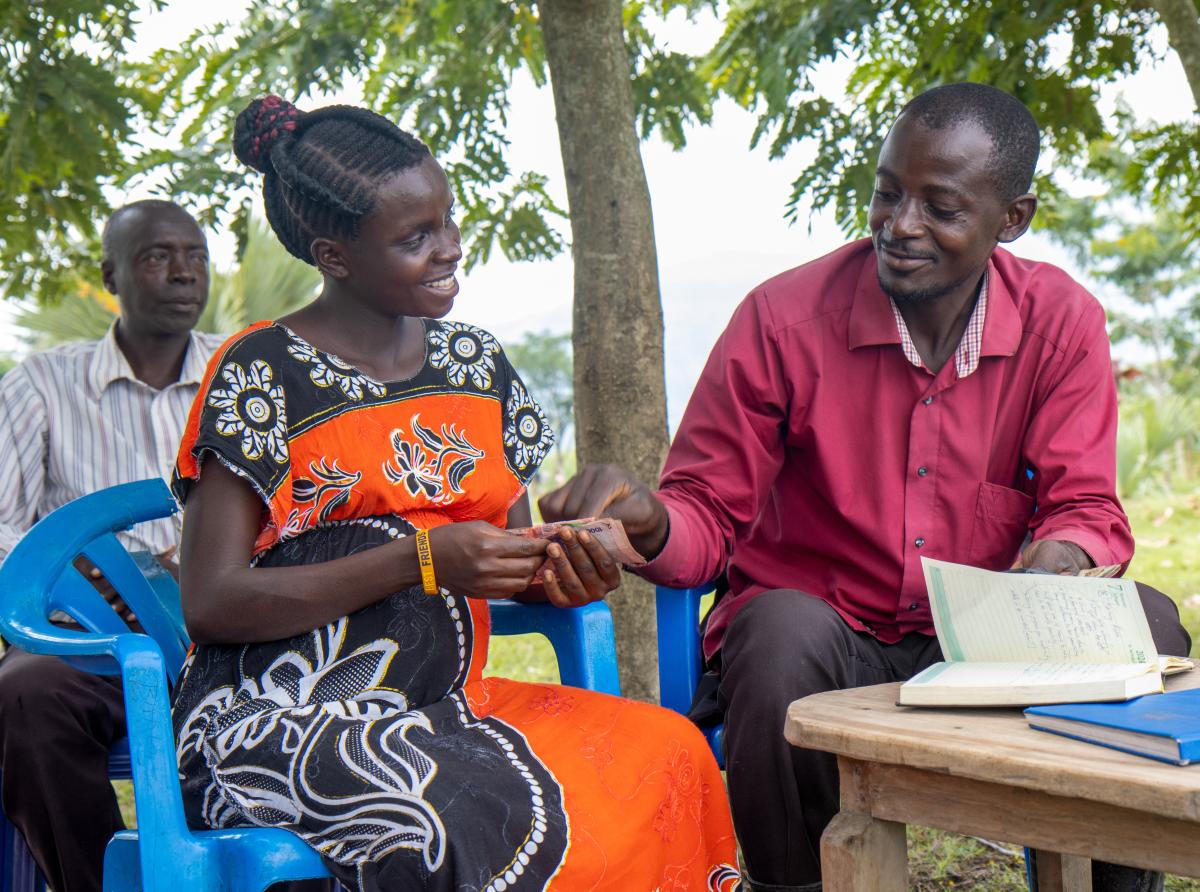
A mother in Uganda determined to save for her family’s health insurance
John CANDIGA | 10/06/2025
When Evera Pauline started saving for health in 2023 with her Village Savings and Loans Association group in Kyotuha Village, Bweramule Sub-County in Ntoroko district, she did not only plan it for herself but also for other members of her household, especially her children. She knows that as head of the household, it is her responsibility to ensure that her family members are healthy and receive proper medication whenever they get ill. Evera’s health fund indeed came in handy when her son became ill in May 2024. She did not worry so much about the medical bills after taking him to a private health facility, Masindi Medical Center in Bweramule Sub-County, Ntoroko district. “I had to first rush him to the health facility before calling our group chairperson to borrow money”, said Pauline. After the group chairperson, Mukume Robert, considered her request, 250,000 UGX was deposited in her mobile money account, as requested. “The borrowing process from my experience was very easy and our group leaders are supportive as well”, she said. Evera did not have to incur more transport to physically come to pick the money from the group chairperson. Had she not saved for health, Evera said that, as usual, she would have considered the possibility of borrowing from her neighbours which also comes with a lot of uncertainty. “Just like myself, people do not have money every time. Getting a loan from neighbours or friends is always a matter of chance”, she said. Evera said that previously when a person in the family fell sick, and the medical bill can not be settled easily, they would sell a goat or cow to meet the cost. A practice she said robs her family of the productive assets that could have the family at a later time. As a businesswoman, dealing in selling fish and crop produce, Evera saves between 2,000 to 5,000 UGX weekly for health in Kyotuha Village Savings and Loans Association (VSLA) group. To date, she has saved a total of 690,000 UGX. After borrowing from the group, she has fully repaid her loan. “The saving for health money supports all of us group members during medical emergencies. I am glad that I did not delay with loan the repayment so that other members can also borrow in case the need arises.” She added. As part of her plans, Evera intends to set her weekly saving for health amount to 5,000 UGX or more. She also plans to encourage other women in her business circle to join saving for health to benefit from the initiative. She hopes that one day, some of them if not all can consider her encouragement.
-
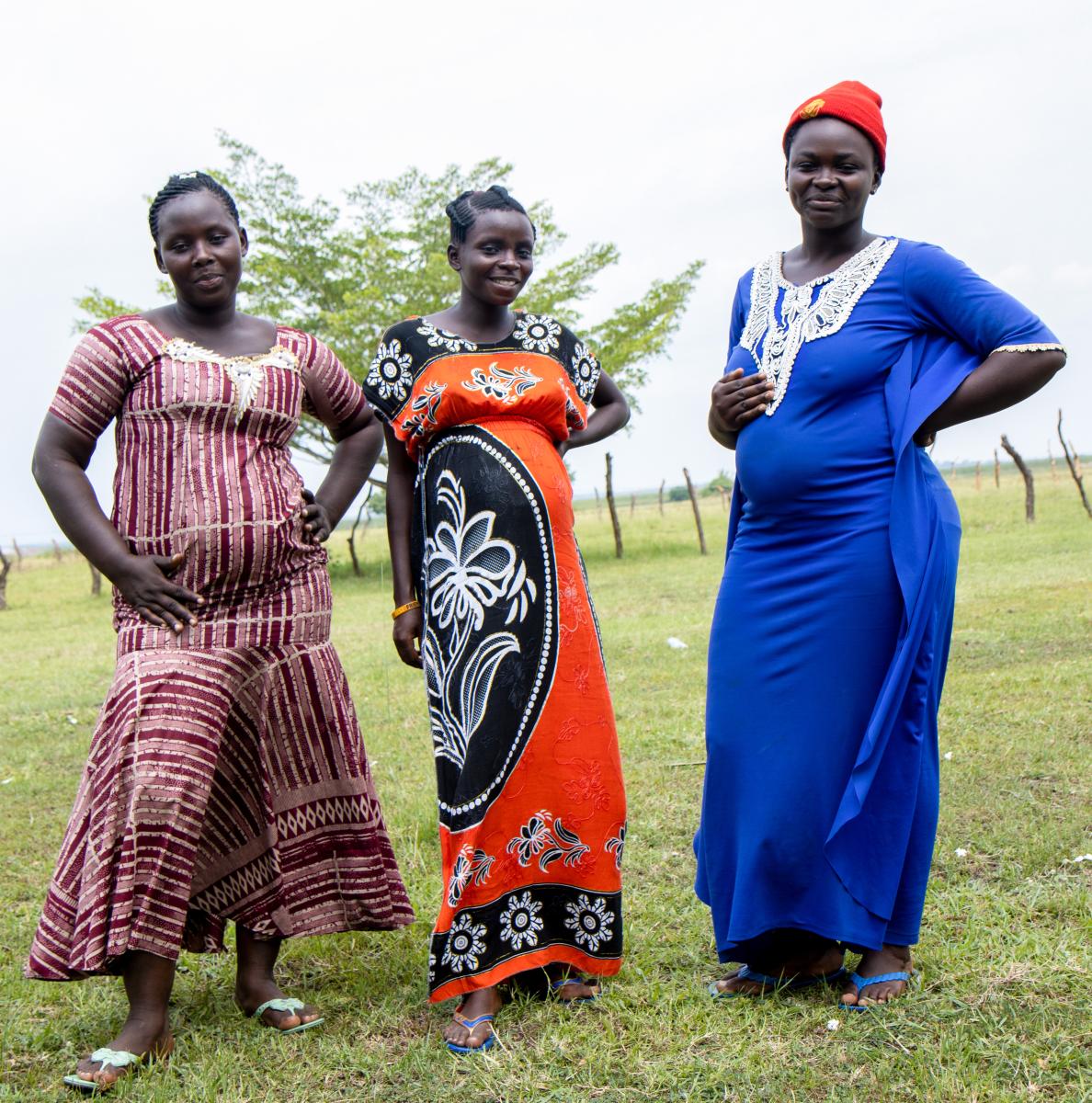
Inspiring expectant mothers in Uganda to save for health.
John CANDIGA | 10/06/2025
When Karungi discovered that she was expecting her third child, she knew she wanted things to be different this time. In her previous two pregnancies, she gave birth at home with the help of a traditional birth attendant. While both deliveries were successful, she understood the risks that birth complications could be life-threatening, and newborns were vulnerable to infections due to inadequate medical care, especially in the hands of unprofessional birth attendants. But like many mothers in her community, the cost of transportation to a health facility and medical expenses seemed overwhelming. This worry, however, changed in September 2023, when the Kyotuha Village Savings and Loans Association introduced a new initiative: saving for health, after the group received capacity-building training on financial education and saving for health by Enabel trained Village Health Team members, under the Social Protection and Decent Work Project. The programme encouraged members to set aside money specifically for medical needs, including maternity care. Roset saw an opportunity to take control of her pregnancy journey and immediately joined the initiative, determined to ensure a safer delivery. With discipline and commitment, Roset consistently saved, and by the time of her baby’s arrival, she had accumulated 111,000 UGX in her health account. When the moment came, she borrowed an additional 200,000 UGX from the group to cover transportation to the health facility and purchase essential supplies for her newborn. “I felt secure knowing that I had the funds to reach the hospital and receive proper maternity services,” said Roset. Roset operates a small retail business for household items, and has already paid off more than half of her interest-free health savings loan to the group and plans to clear the balance 2 months later. Her goal is to maintain access to financial support for any future health needs, both for herself and her family. Inspired by Roset’s experience, other expectant mothers, Basemera Teddy and Kajumba Joselyne, have also embraced saving for health. Seeing the benefits from Roset’s experience strengthened their commitment to plan for their deliveries. Both women balance agricultural work with selling fish and other retail produce at the local market to generate income to ensure that they can consistently contribute to their weekly health savings. Together, Teddy and Joselyne saved 370,000 UGX, with each having 240,000 UGX and 130,000 UGX, respectively. Depending on their weekly earnings, they set aside small amounts for their health savings at Kyotuha Village Savings and Loans Association. Teddy contributes at least 2,000 UGX per week, while Joselyne saves 1,000 UGX; both mothers have plans to increase their savings during harvest season when they expect to earn more from selling crop produce.For these women, saving for health is more than just financial planning, but a commitment to their well-being. They are taking charge of their personal and family health through embracing saving for health.
-
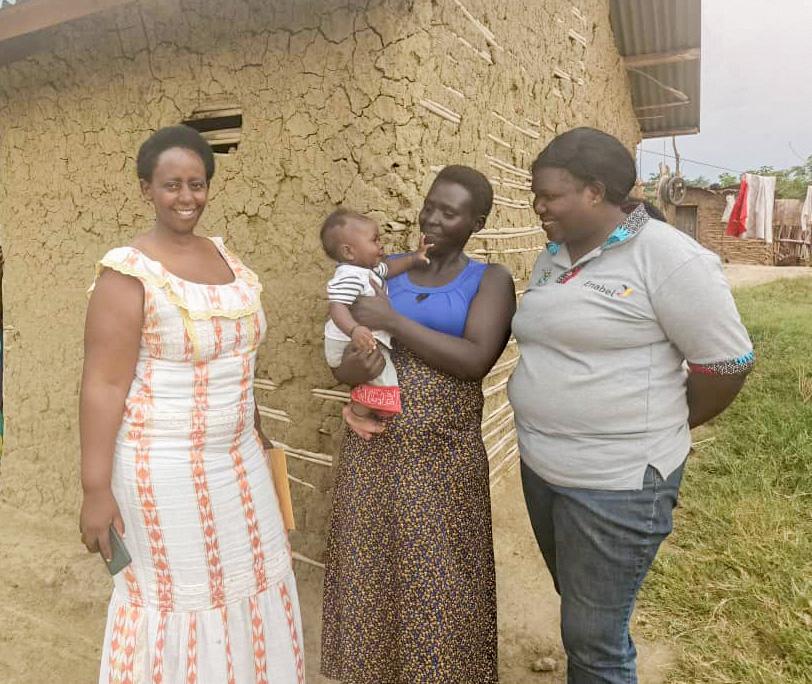
We are saving for the health of our family, Ugandan family.
John CANDIGA | 10/06/2025
When labor pains started, Eunice Bimbo felt a quiet sense of assurance. Unlike her previous delivery, where she had to undergo a C-section, Eunice had prepared differently this time, thanks to the saving for health plan she had joined in her Village Savings and Loans Association (VSLA). She was not worried about transport costs to the health center or the unexpected medical bills because she had access to timely health funds when she needed, and that made all the difference. Eunice embraced saving for health in August 2023 when her Village Savings and Loans Association, Ngenge Women Tweyimukye, participated in a financial literacy and Saving for Health training organized by Enabel through trained Village Health Team members. “I didn’t want to face the same struggles I did during my last delivery,” Eunice reflected. The training empowered Eunice and 31 other women in the group to start saving for health, to benefit them and their family members. Founded in 2016, the Ngenge Women Tweyimukye Village Savings and Loans Association was created to help women in the community access capital for business ventures and agricultural investments. However, after the training, Eunice and her fellow members quickly realized that financial stability was more than just business, but also health. “Many women in our community struggle to access quality healthcare, especially during pregnancy. Transport to the health center costs 40,000 UGX for a round-trip, and that’s simply out of reach for many of us.” Said Eunice. After the training, the group was determined to ensure that pregnant mothers have access to maternity services without the constant worry of financial strain by borrowing interest-free health loans. This was aimed at breaking barriers that prevent expectant mothers from attending maternity services. For Eunice, the effort hit close to home. She vividly recalls the challenges she faced during her last pregnancy, when complications led to a referral from Bweramule Health Center III to Rwebishinge Health Center IV for a C-section. The financial burden of the procedure left her with a 5% interest loan from money lenders. It was a difficult experience, but it sparked her resolve to save for health. After saving 80,000 UGX for health in her group, Eunice was able to borrow double the amount from the group. The amount facilitated her movement to give birth at Karugutu Health Centre IV in March last year. “It was enough to acquire everything I needed for that day since my husband had already arranged for transport to the health facility,” she says with a relieved smile. Eunice's income comes from milk sales from the family herd, as well as purchasing milk from other farmers in the community to increase her quantity and sales. She has already repaid the loan in full, a month later, an achievement that reinforced her commitment to her health savings plan. She intends to increase my weekly contribution to 2,000 UGX or more. With a supportive partner, Eunice is happy that they will save for health together. “My husband has embraced the idea. He helps me with the weekly savings sometimes, and together, we’re building a secure emergency health fund for our family.” She said.
-
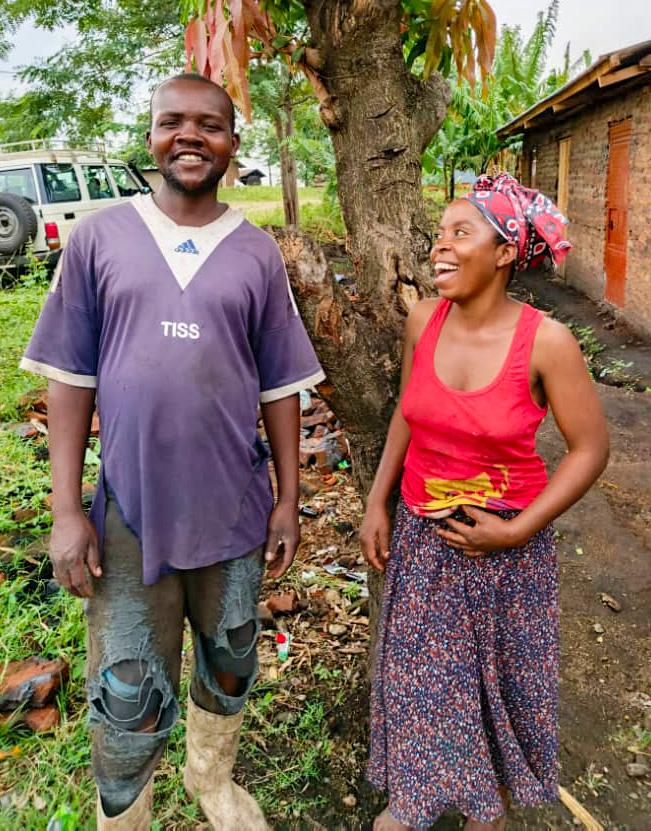
Biira Rehema in Uganda has found strength in saving for health
John CANDIGA | 10/06/2025
The story of Biira Rehema is a journey of resilience, hardship, and ultimately, empowerment. As a mother of four, she knows all too well the unpredictability of health emergencies and the financial strain they can bring on a person or family. When she went into labor during the height of COVID-19 restrictions, like her previous three deliveries, this one required a Caesarean section at Karugutu Health Center IV. But what should have been a moment of relief turned into a nightmare when post-surgery complications arose. Biira was told that she needed specialized treatment at Fort Portal Regional Referral Hospital. But there was one major obstacle: money. With no savings and limited ambulance services, she and her husband, Bwambale Umaru, were forced to make a hard decision. They had to sell six of their goats to afford transport and medical expenses. Her recovery was slow and costly. Spending weeks in the referral hospital meant mounting bills, pushing them to the brink of selling a plot of land they had acquired. “Had my husband not succeeded in borrowing from friends, we could have lost that piece of land as well,” Biira recalls. Determined to never face such desperation again, Biira took a bold step in 2022 by joining the Nombe Beekeepers Saving Group. There, she learned beekeeping and, more importantly, the power of financial planning. When an Enabel ambassador introduced the concept of Saving for Health, Biira saw a lifeline and joined 22 other members in setting aside money specifically for medical emergencies. She saved up to 60,000 UGX before a health need came up. That preparation, however, paid off when her child fell sick. This time, there was no reason to panic and no need to sell their hard-earned family assets. She was confident in her savings group and reached out to the chairperson to request a loan of 200,000 UGX, which was granted swiftly, requiring only a fellow group member as a guarantor. Her husband, Umaru, a peasant farmer, expressed his relief and pride. “She saved us from that unplanned expense,” he said. Having supported his wife in her beekeeping activities by setting up hives and harvesting honey, Umaru is happy that the venture has rescued their family at a time of need. He is also happy that Biira has embraced saving for health in her group. True to her commitment, Biira repaid 120,000 UGX of the interest-free loan within three weeks and plans to clear the balance of 80,000 UGX in the following month. The chairperson of Nombe Beekeeper Village Savings and Loans Association, Mutalinga George, emphasized the importance of timely loan repayment to ensure that funds remain available for other group members in need.Having benefited from the saving for health initiative, Biira is complementing the effort of the Village Health Team members to promote saving for health in her community. She actively encourages other women to join the group and start saving. Thanks to her efforts, four new members have already signed up, according to the group chairperson.
-
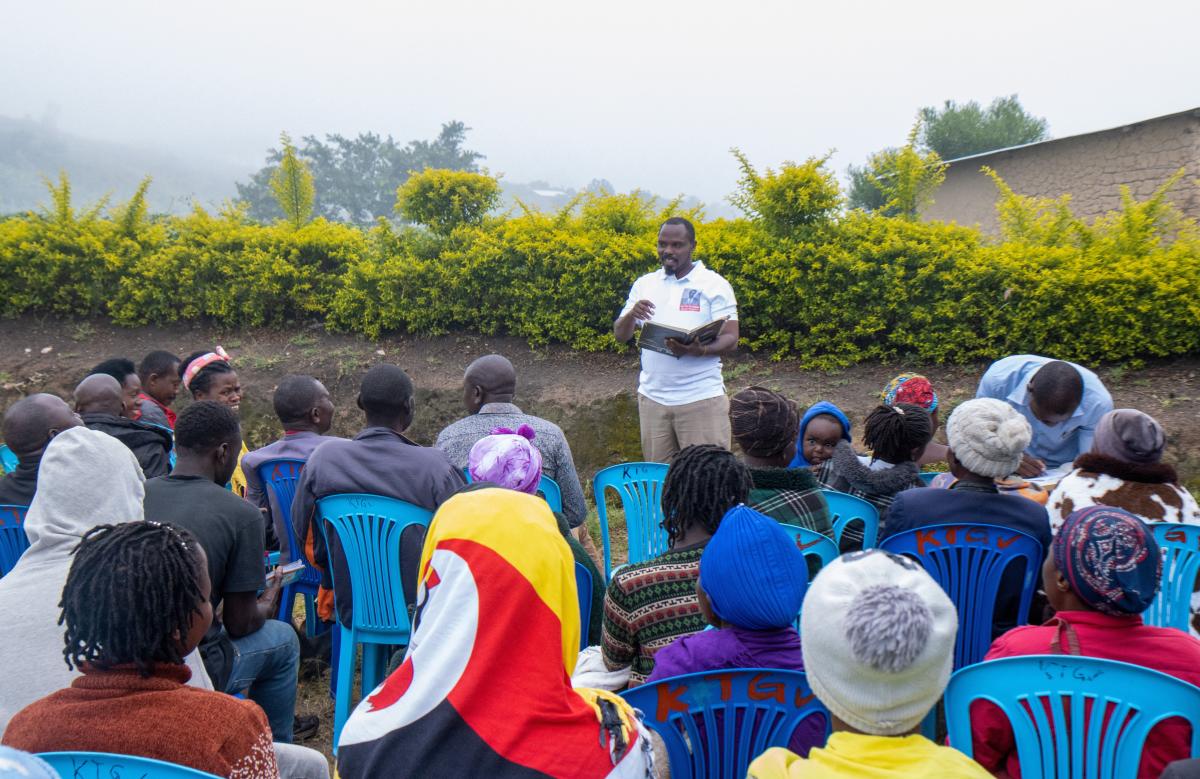
Community members in Uganda beating all odds to access healthcare services
John CANDIGA | 10/06/2025
Access to healthcare services has long been a challenge for community members in Kinyamangi village. With the nearest health facilities, Karugutu Health Center IV and Musadama HC III, located 8 kilometres away, community members often have no choice but to carry their sick on wooden stretchers over the hilly and rough paths. For years, maternal and infant deaths, preventable illnesses, and the burden of high medical costs have weighed heavily on this resilient community. But in 2022, they decided to take matters into their own hands.With a group of 135 members (95 women and 40 men), they combined efforts to form the Kinyamangi Tukurakurane Village Savings and Loans Association. Their vision extended beyond improving household incomes to wanting a financial fund for health emergencies by pooling their resources, to ensure that no member of their community suffers due to a lack of funds to swiftly rush them for medical care.With guidance from the Enabel trained Village Health Team members (ambassadors) in August 2023, the group members began to save for healthcare expenses. Within 8 months, they had saved 2,167,000 UGX, setting a weekly savings goal of at least 50,000 UGX, with each member contributing not less than 500 UGX per week.Basemera Margaret, one of the mothers in the group, was able to borrow 30,000 UGX to treat her child’s injury. “I used the loan to pay for transport for taking the child to Karugutu HC IV,” she shared. Another member, Musubaho Amos, also borrowed 30,000 UGX when his child fell sick. He said, “it is a relief to know that when our children or even ourselves need urgent medical care, we have somewhere to turn to and acquire a loan without interest.” At the time of borrowing, Basemera had saved 18,000 UGX for health, while Amos had 21,500 UGX.The savings fund has also been a lifeline for expectant mothers who are members of the group. Two women in the group accessed funds to cover transportation costs to the health facility for safe deliveries. “It may seem like a small amount, but these savings ensured that our mothers gave birth safely, by paying for transport to health facilities.” Said Kaswara David, the group’s chairperson.As the membership continues to grow, David said that the group is considering engaging in income-generating activities and seeking government support through livelihood programmes to further bolster their savings.The group chairperson said that the lack of safe drinking water has led to an increase in diseases such as typhoid, diarrhea, and malaria, further underscoring the necessity of the saving for health initiative as they continue to advocate for a lasting solution to address the above disease causes.Against all odds, the group members of Kinyamangi are determined to ensure that their health savings fund continues to promote access to healthcare services through facilitating the movement to facilities and the buying of medicine.
-
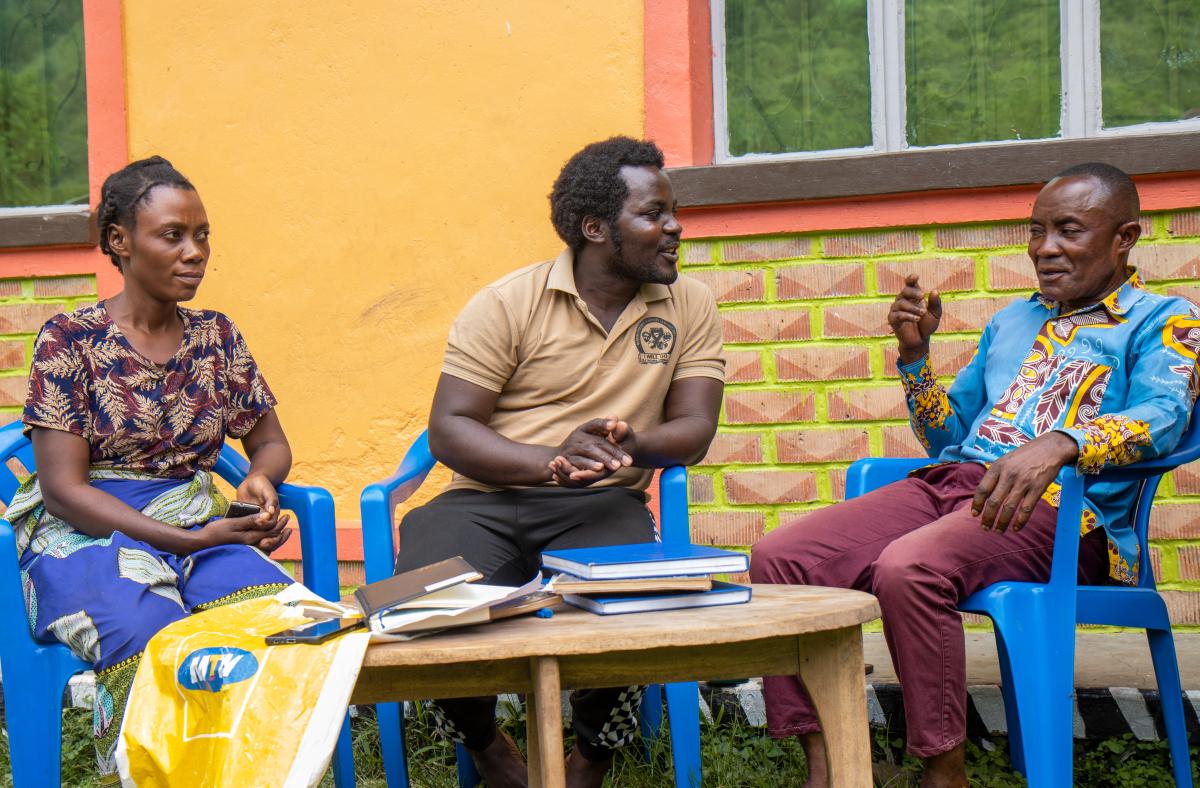
Village group in Uganda changing lives through saving for health
John CANDIGA | 10/06/2025
In Bweramule Sub-County, Ntoroko district, community members have come together to form a group to make a positive economic and health impact in the community. The Basambo United group was formed in April 2023 to improve the income status of members and promote public health initiatives through activities such as health outreaches, hygiene and sanitation campaigns, and Sexual reproductive health and rights sensitizations.By embracing saving for health and investing in local health insurance, Basambo United group is ensuring that community members have access to locally sustainable initiatives through which they can keep and access emergency health funds.The nearest public health facility, Karugutu Health Center IV, is about 10 miles away, and just getting there costs at least 20,000 UGX in transport fees—an amount that doubles if an emergency occurs at night. As a result, many community members faced with financial constraints delay seeking treatment, as a way of trying to avoid the expenses. This has in many occasions worsened the health conditions, leading to even more expenses.With 35 dedicated members (17 men and 18 women), Basambo United group was inspired to start saving for health after receiving training on financial management and saving for health from Kasangaki Edward, a Village Health Team member trained by Enabel to support existing community saving groups to embrace saving for health in their programmes. The group chairperson, Baluku Daniel, said that the knowledge they acquired from the training was in line with their core objective of starting the group.As a result, the group has so far saved 2,000,000 UGX specifically for the members’ healthcare needs. “Each member contributes 2,000 UGX every week to the collective health fund, allowing them to provide financial assistance through interest-free loans to those requiring healthcare services such as maternity, transport to facilities, and buying prescribed medicine”, said Baluku. He said that 996,000 UGX has already been borrowed by 20 members, and about half the amount was successfully repaid.Baluku Daniel recalls a sad incident last year that reinforced the need for group members to embrace the saving for health initiative. “Early last year, a mother lost a pregnancy because she did not have enough money to facilitate her transport to the health center in time. By the time funds were mobilized, complications had set in, and she had to be referred immediately. Unfortunately, it was too late”, he narrated. This incident served as a wake-up call for the community, highlighting the urgency of participating in saving for health.The expectant mothers who are now part of the savings group have peace of mind, knowing that they will not struggle with last-minute financial hurdles. “Compared to other pregnant women, expectant mothers who save for health worry less about transport to health facilities and the cost of maternity services”, said Baluku. He also emphasizes the importance of men supporting their wives in this effort, ensuring that every family is prepared for such critical moments. With a private health facility, Masindi Medical Center being the closest and easily accessible, the group encouraged each member to save at least 50,000 UGX to access essential healthcare services.Dr. Kato, the Director, Masindi Medical Center, acknowledges the commitment of the community members to take charge of their health by saving for health in the groups. Every month, the facility delivers an average of 40 mothers, many of whom come from Bweramule and neighboring sub-counties. He applauds Basambo United’s initiative, noting that community-driven healthcare models can bridge critical healthcare gaps.
-
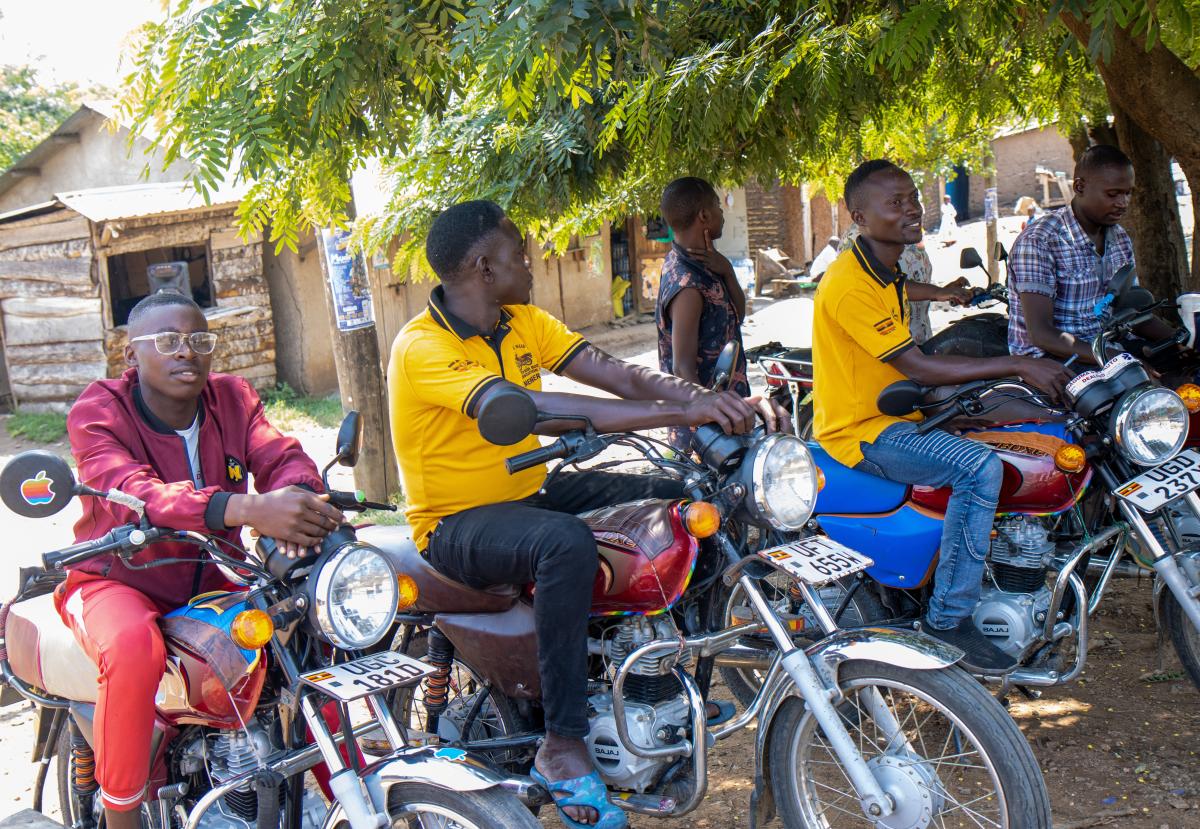
Boda boda riders in Uganda take control of their health through savings
John CANDIGA | 10/06/2025
For many Ugandans, boda boda riders are the quickest and most reliable means of transport. Whether rushing an expectant mother to a health center, navigating rugged rural roads to deliver urgent supplies, or simply offering affordable transport, boda bodas have become an indispensable part of daily life in both urban and rural Uganda. Yet, for those who ride them, life is often challenging because a single illness or accident can mean days without income, and for many, unexpected medical expenses can be devastating as well.In Bweramule Sub-County, Ntoroko District, a group of boda boda riders has taken a bold step to change that reality. In 2016, 26 young riders started a savings initiative that has now blossomed into a thriving financial safety net providing loans to its members. The Bweramule Youth Boda Boda Association has now grown to 76 members (11 women, 65 men) who are redefining how informal workers prepare for medical emergencies through embracing saving for health in their group.The groups chairperson said that for years, when one of their fellow riders fell ill, the group would struggle to raise funds from among the riders, often with little success. “People wanted to help, but since emergencies are unpredictable, many couldn’t contribute at short notice.” He said.That all changed in November 2023 when Onesmo, a Village Health Team member (ambassador) trained by Enabel, introduced the concept of saving specifically for health to the group members. Through a series of financial education trainings, members realized that by setting aside small amounts consistently, they could create a dependable emergency fund for medical emergencies. Today, 56 members actively contribute to the health savings fund, and together, they have already saved 2,862,400 UGX for health. Unlike traditional loans, the health savings fund in the Village Savings and Loans Associations allows members to borrow interest-free in times of need. “Just last month, 80,000 UGX was borrowed from the fund to cover medical expenses,” says the association’s treasurer. “Now, instead of struggling to mobilize emergency contributions, members can access money quickly and focus on getting better”, he added.Beyond emergency care, the fund is addressing a major challenge faced by many rural Ugandans, such as drug shortages in government health centres. With their savings, members can now purchase necessary prescribed medications from private pharmacies, ensuring they receive timely treatment. While boda boda riding is the primary income source for most of the group members, the association is also empowering its female members, many of whom run small retail businesses, selling agricultural produce and fish. With their growing savings culture, the group has ambitious plans, including opening a motorcycle spare parts and repair business, constructing rental properties for additional income, and providing motorcycles on loan on a rotational basis to members who don’t own one yet. The chairperson said that their goal is to make sure every member owns a motorcycle. “Owning a bike means financial stability, and financial stability means more income and savings”, he proudly said.The association is also looking ahead by encouraging more community members to join village savings and loan associations (VSLAs), especially those that are actively saving for health. “One day, we hope every group member can save at least 10,000 UGX weekly for their health,” added the chairperson.
-
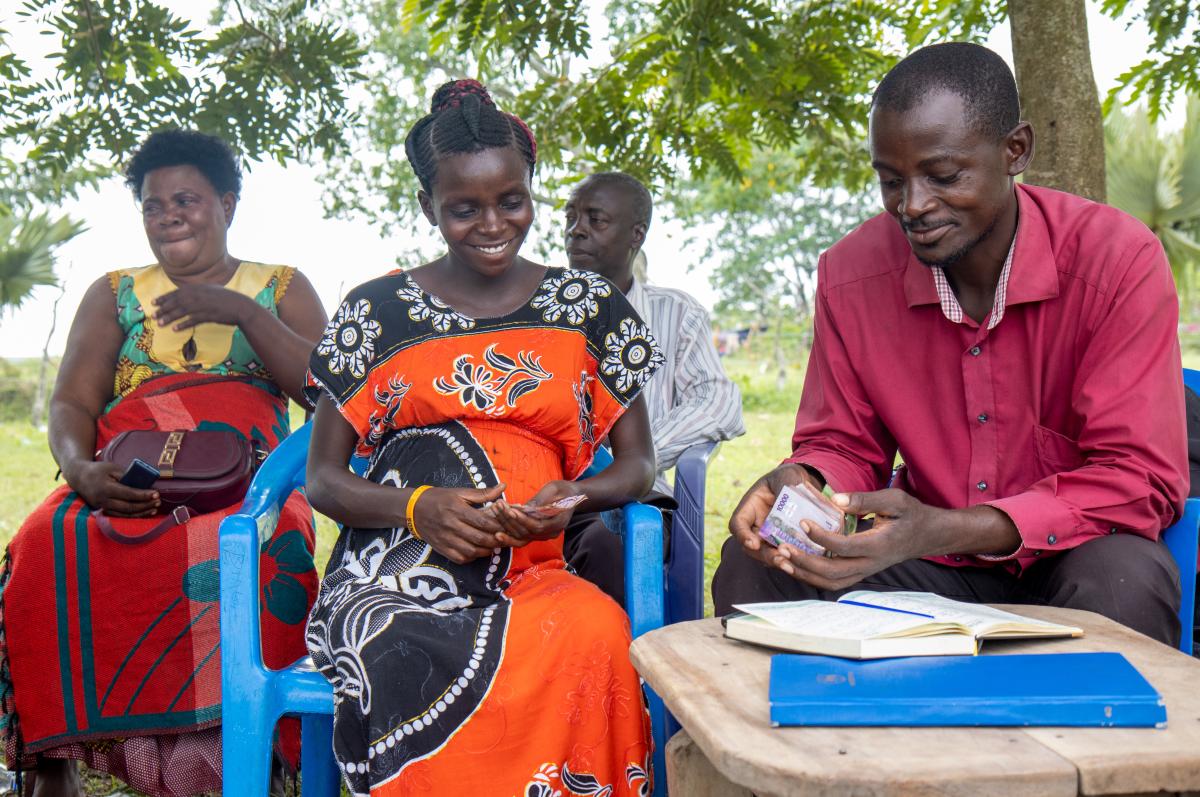
A Ugandan village overcomes health barriers through saving for health
John CANDIGA | 10/06/2025
When expectant mother Basemera Teddy needed urgent medical care, she faced a difficult choice—walk miles to the nearest clinic or pay an expensive motorcycle fare. Like many in her village, she could not afford the transport. But a new savings initiative is changing that.For years, the people of Kyotuha village have struggled to reach medical care. The closest health center is miles away, and without transport, many have had no choice but to suffer in silence. In 2021, they formed Kyotuha Village Savings and Loans Association, initially to create opportunities to access affordable credit for small businesses like petty trade and cattle keeping. However, their impact has now gone beyond individual livelihoods.With profits from their loaned funds, they took it upon themselves to construct a simple makeshift bridge, solving a long-standing access challenge for pedestrians and motorcycle riders in the village. This act of collective effort is just one example of how they are transforming their community so that residents have access to key services, including health.Basemera Teddy recalls the heartbreaking loss of a newborn when a mother was forced to rely on a traditional birth attendant due to the challenge of reaching trained medical professionals in time. In another instance, an expectant mother gave birth to twins in the hands of unqualified community members after failing to reach the health center in time. Though the children survived, they continue to suffer from frequent health complications linked to their birth conditions.Recognizing the urgency of access to healthcare, the group embraced financial training from Kasangaki Edward, a community Village Health Team worker trained by Enabel, in September 2023 under the Social Protection and Decent Work Project. Inspired by the knowledge gained, all 33 members (17 women and 16 men) began saving specifically for health expenses. To date, they have accumulated 8,000,000 UGX in their group health savings account. Initially, the group had set a fixed weekly savings contribution between 2,000 and 5,000 UGX per member. However, as Chairperson Mukume Robert explains, they soon realized that it affected some members who faced fluctuating incomes. “We decided to let people save what they can. Someone may put in 2,000 UGX today and then bring 7,000 UGX the following week. This flexibility has been a game-changer,” he said.Already, the fund is making a difference. Five members have borrowed a total of 1,000,000 UGX to cover medical costs, with three of them successfully repaying 700,000 UGX within a month. The ability to access healthcare without sinking into debt or relying on uncertain sources of money is empowering for these villagers.Among the savers are four expectant mothers who have collectively saved 734,000 UGX, ensuring they can afford transport and medical care when it is time for them to give birth. Kajumba Joselyne, one of the pregnant women, shares her relief. “With my savings, I will be able to afford transport to the health center and buy clothes for my baby,” she says with a hopeful smile. Looking ahead, the group has ambitious plans. They aim to venture into goat rearing as an additional income-generating activity. But their most critical goal is to purchase a motorcycle for emergency medical transportation. “Given the current state of our roads, a motorcycle is the fastest and most reliable way to transport people to the health center, so we plan to buy one as a group”, explains Mukume Robert.
-
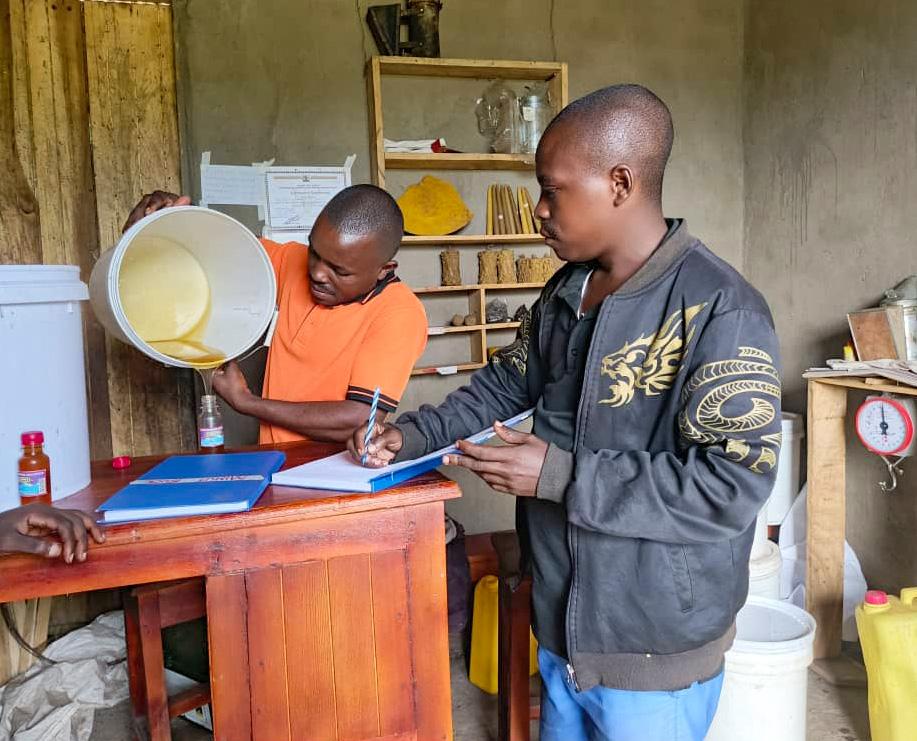
How beekeepers in Uganda are saving for health
John CANDIGA | 10/06/2025
In the rural district of Ntoroko, Uganda, groups of young beekeepers found an unexpected way to protect their health—by saving through honey production. What began as a small business in 2017 has grown into a lifeline for medical emergencies.The Nombe Beekeepers Group, in Nombe sub-county, Ntoroko district, was started after Mutalinga George, the group chairperson, completed a 3 months training in beekeeping from Bunyangabu Beekeepers Cooperative. “After completing the training, I trained 6 more youth in beekeeping to start the group together”, said George. Now with 28 members (13 men and 15 women), the group has trained 150 youth in beekeeping. They supply honey, wax, and propolis while managing 111 beehives to support the growing local market. Inspired by the training conducted by Kyakima Hopeman, a Village Health Team member trained by Enabel, 12 members of the group took the first step toward financial security by saving money specifically for medical emergencies. Today, the number of group members saving for health has grown to 22 members (13 women and 9 men), who are now actively contributing to the health emergency fund every week.Each member deposits 1,000 UGX into the fund every week, an amount that, while modest, has already accumulated to an impressive 808,000 UGX. “Last month, one member was able to access 200,000 UGX for urgent medical care, and successfully repaid the loan”, said George, the group chairperson.With government health centres often facing drug shortages, overcrowding at health centers, and high costs of referrals, the members of Nombe Beekeepers Savings and Loans Association can afford to access facilities timely and buy medicine in case they can not find them at the public facilities. Mutalinga George, the group’s chairperson, said that saving for health shields members from financial shocks and ensures they get the care they need when they are sick.To boost their sources of income, the group plans to expand their income-generating activities beyond beekeeping and savings, venturing into poultry farming and brickmaking. They intend to grow their health savings fund and provide even more support for their members. Additionally, they aim to double their weekly health savings contribution from 1,000 UGX to 2,000 UGX per member.At their next annual general meeting, they plan to make saving for health a compulsory weekly contribution, ensuring that every current and future member participates in saving for health.
-
A New Chapter for Uganda’s Tourism: UHTTI and Enabel Sign Strategic Grant Agreement
Dorothy KYAMAZIMA | 08/06/2025
On May 28, 2025, a major milestone was achieved in Uganda’s journey towards becoming a leading tourism destination in Africa. The Uganda Hotel and Tourism Training Institute (UHTTI) and Enabel, the Belgian agency for international cooperation, signed a €260,000 grant agreement to enhance skills development in the tourism and hospitality sector. The grant marks a significant step forward in transforming UHTTI into a Centre of Excellence for tourism and hospitality training in Uganda. With the growing importance of the sector—contributing 6.6% to the national GDP and supporting over 800,000 jobs—this investment is timely and strategic. This partnership is not just about funding—it represents a deep commitment to capacity building, digital transformation, industry collaboration, and youth empowerment. Representing the Embassy of Belgium, Luc Pirson, the Head of Cooperation emphasised Belgium’s recognition of Uganda’s unique tourism potential: “It is not only about game parks with elephants and lions, not only about the gorillas. Uganda is also mountaineering, white water rafting, adventurous bicycle tours, birding, the source of the Nile, discovering unknown cultures, coffee and tea farming.” He highlighted Belgium’s multi-pronged support to the sector, including investments in virtual reality tools for promoting Uganda abroad, sustainable tourism certifications, skills training for over 2,500 youth, and support to institutions like UHTTI and the Millennium Business School. Belgium, through Enabel and with additional EU funding, is investing over €3 million in Uganda’s tourism and hospitality industry under its flagship WeWork and Decent Work programmes. The goal: equip young Ugandans with the skills and experience needed for decent, green, and sustainable jobs. Hon. Tom Butime, Uganda’s Minister of Tourism, Wildlife and Antiquities, underscored the significance of the agreement: “The grant signing agreement we're witnessing today is more than just a formal gesture; it represents a tangible commitment to empowering Uganda's tourism sector through enhanced training and capacity development.” The grant’s focus areas The €260,000 grant (UGX 1.1 billion) will directly support several strategic areas: Digitalisation – Transforming UHTTI’s learning environment and operations to match global tourism standards. Staff Capacity Building – Enhancing teaching quality through training programs and workshops. Curriculum Development – Aligning curricula with international best practices to ensure graduate employability. Industry Linkages – Facilitating partnerships that provide students with internships, placements, and real-world experience. This partnership also opens doors to collaboration with institutions like Hotel School Koksijde in Belgium, enabling international knowledge exchange and exposure for trainers and students alike. It is a testament to the strong bilateral relations between Uganda and Belgium and their shared vision for sustainable, inclusive development. Enabel’s collaboration with the Ministry of Tourism and key players in the private sector signals a holistic approach to unlocking the potential of tourism as a driver for jobs and prosperity. As Uganda continues to position itself as the Pearl of Africa, this new chapter with UHTTI and Enabel demonstrates that with the right investments in skills and partnerships, tourism can indeed be a pathway to national transformation.
-
Unlocking Decent Work and Social Protection for Uganda’s Informal Workers
Dorothy KYAMAZIMA | 08/06/2025
In Uganda’s bustling markets, verdant farms, and growing tourism hotspots, a quiet but powerful transformation is underway—one that aims to uplift millions of workers who have long laboured without a safety net or voice. A new initiative by the International Labour Organisation (ILO), in partnership with Enabel (the Belgian development agency), is striving to turn the tide on poor working conditions and limited social protection in the agriculture, tourism, and hospitality sectors of the Albertine-Rwenzori region. The Problem: Millions Working Without a Net Uganda’s informal economy is massive, employing more than 90% of the working population. Yet only 3.1% of Ugandans are covered by even one form of social protection. Women—especially those in agriculture and hospitality—are disproportionately left behind, often juggling unpaid care work, informal jobs, and zero workplace benefits. For most, there’s no maternity leave, no pension, no recourse in case of workplace injuries. While the National Social Security Fund (NSSF) exists to offer a savings-based cushion, it covers just 5% of Uganda’s working-age population. The 2022 legal amendment that allows informal workers to voluntarily join NSSF marks progress, but much more remains to be done—particularly in raising awareness and facilitating enrollment. The Response: Building Systems That Include Everyone The new two-year project led by ILO and supported by Enabel is designed to address these structural challenges head-on. It focuses on building a culture of decent work and extending social protection to workers who’ve traditionally been excluded. The project is structured around five interconnected pillars: Fundamental Rights at Work: Training thousands of workers, union leaders, and employers in labour rights, freedom of association, workplace safety, and gender and disability inclusion. Through a cascade model of training-of-trainers (ToTs), this knowledge will ripple out to thousands more. Social Protection Access: Partnering with NSSF and the Ministry of Gender, Labour and Social Development to roll out voluntary contribution schemes, targeting informal workers in tourism, agriculture, and hospitality. This includes sensitisation campaigns and capacity-building for NSSF outreach teams. Social Dialogue: Empowering women’s organizations, trade unions, and employer associations to advocate for improved working conditions. Special attention will be given to elevating female voices in leadership and strengthening negotiation and organizational skills. Labour Productivity: Supporting the national Productivity Task Force through capacity-building and evidence-based policy development to improve national labour productivity and create more decent jobs. Policy and System Strengthening: Aligning efforts with Uganda’s Vision 2040, National Social Protection Strategy (2023–2028), and the Decent Work Country Programme (2024–2028), ensuring that every intervention contributes to national goals. “This initiative focuses on sectors vital for inclusive growth but still facing significant challenges,” noted Tom Vanneste, Resident Representative of Enabel in Uganda, at the project’s launch. “We’re not just funding activities—we’re shaping a long-term shift by uniting our field presence with ILO’s technical leadership.” Indeed, the collaboration builds on years of groundwork: from drafting employment and apprenticeship regulations to training MPs and Labour Advisory Boards on the importance of decent work. What’s different now is the speed, focus, and scale. What’s Next: Making Rights Real The project aims to directly benefit thousands of workers and indirectly uplift entire communities across the Albertine-Rwenzori region. Women and youth, especially those in precarious employment, are at the heart of the intervention. By leveraging Uganda’s national frameworks and the ILO’s global expertise, the initiative is charting a path toward more inclusive, fair, and sustainable livelihoods. With strong stakeholder engagement—from farmers and hotel owners to district labour officers and national policymakers—this initiative is more than a policy; it's a movement. Because decent work should never be a privilege—it should be a right.
-
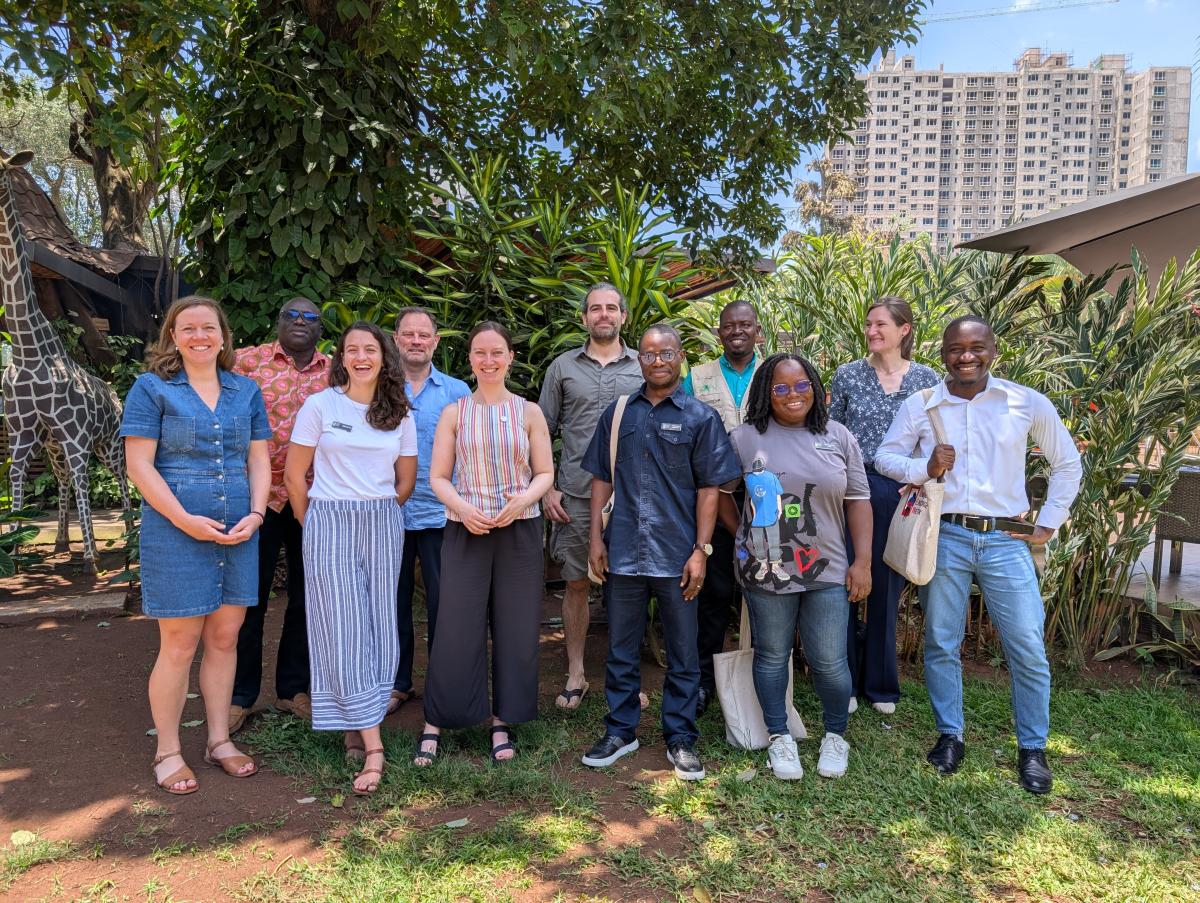
Empowering African innovation: public innovations selected to scale their impact
Alice BONJEAN | 06/06/2025
As part of the Digital and Green Innovation Action, the Enabel Innovation Hub, is implementing the Call for Proposals on Scaling Digital and Green Innovations in Africa. Through a combination of grants and capacity building, the Innovation Hub supports not-for-profit and public stakeholders in designing and implementing data-driven digital solutions to address pressing social challenges. By bridging digital divides—whether urban-rural, gender-based, or generational—the programme aims to strengthen data-informed decision-making and policymaking. Digital and Green Innovations (DGIs) refer to solutions that harness digital tools or technologies to deliver measurable contributions to at least one of the following environmental objectives: Climate adaptation, resilience, or mitigation Protection and restoration of biodiversity and ecosystems Sustainable use and preservation of water and maritime resources Pollution prevention and reduction Resource efficiency Systemic transitions such as the circular economy In this context, digital technologies are not ends in themselves, but instruments for tackling societal challenges and delivering sustainable social and economic impact within planetary boundaries. This Call for Proposals will focus particularly on DGIs aligned with the thematic priorities set by Enabel and its implementing partners under the DGI Joint Action, as well as with the strategic objectives of Enabel’s Country Portfolios.Meet the 5 winners supported for 14 months by Enabel Innovation HubAgritech Moloni, Democratic Republic of the Congo Agritech Moloni is an innovative digital platform that provides Congolese farmers with real-time information on weather, market prices, and sustainable practices tailored to their profile, location, and specific crops. Accessible via SMS and USSD, it promotes digital inclusion even in remote rural areas. The AgriTech Moloni project advocates for sustainable farming practices and aims to increase production while protecting natural resources and strengthening food security.Digi-Tide, Tanzania Digi-Tide is a collaboration of ABALOBI and HIVA-KULeuven, combining social entrepreneurial and academic expertise. After South-Africa and Kenya, this project brings the ABALOBI digital platform to Tanzania, including a mobile app for each fisher to use with individual logbook, a marketplace platform, and a monitor platform. Digi-Tide aims to support small-scale fisheries become greener, digital, and more sustainable. It also facilitates peer learning and builds capacity and networks among Beach Management Units, fishing communities, education actors and other stakeholders in Tanga and Pemba. Digi-Tide will inform and share insights on the Tanzania local fishing sector through videographics based on the project’s ethnographic component.Tap & Track, Uganda The Tap&Track project wants to digitise and formalise rural water systems in Uganda, allowing for more efficient and greener water supply. Practica and GOAL will roll out the Tap&Track system to selected Ugandan Area Service Providers (ASP) – managing handpumps in rural areas – and Umbrella authorities of Water & Sanitation (WatSan) – managing small-scale piped water schemes. Through a web dashboard and a mobile application, these ASP’s and WatSan’s and their caretakers staff, will be able to optimise the financial and technical performance of their drinking water systems, while at the same time greening their operations. Through training and capacity building, the project will especially empower young and female caretakers.DeltaSense, Democratic Republic of the Congo, Uganda, Burundi, Tanzania and Mozambique DeltaSense uses advanced satellite data technologies, validated on the ground by local research institutions, to map and track landscape changes around African lakes. This environmental monitoring, with information available through an open-source remote sensing web platform, is expected to enable authorities and local communities to take action to preserve essential ecosystem services and strengthen their resilience.SAMAD, Benin Access Agriculture’s learning videos in local languages will be made available in a mobile App and through solar-powered smart projectors deployed by grass-roots entrepreneurs, in order to increase the use of agroecology farming techniques. An evidence-based strategy to expand this innovation in Benin and beyond will be developed by engaging multiple stakeholders and collecting end-user feedback.
-
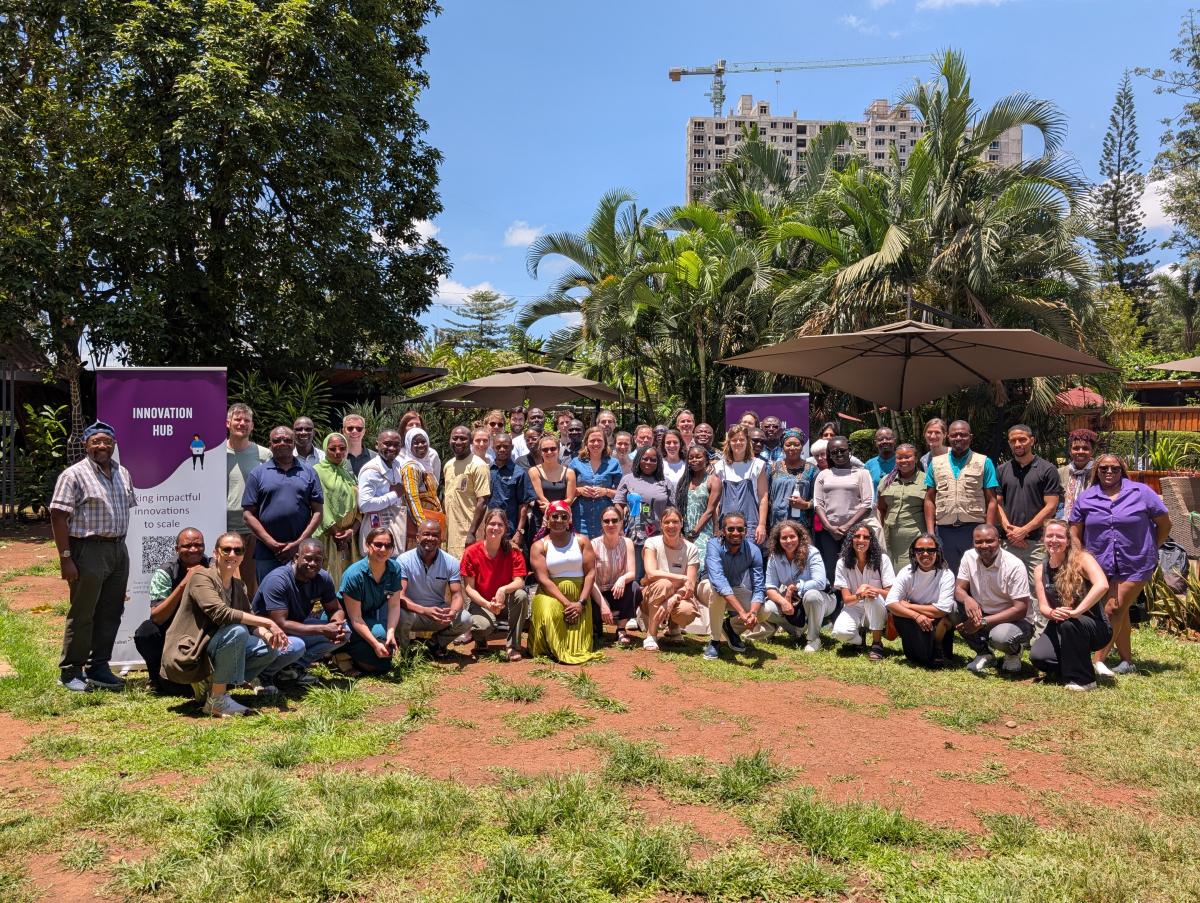
One week in Kampala - Driving digital innovation forward
Alice BONJEAN | 06/06/2025
The Team Europe Data Governance in Africa Initiative and the Digital and Green Innovation Action (DGI) support data-driven and digital innovations in public service, academia, civic engagement and social enterprises. The initiatives gathered innovators in Kampala to shape the future of a sustainable and digital world.A week of reflection, strategy, and shared energyFrom 7 to 11 April 2025, the Enabel Innovation Hub hosted a five-day bootcamp that brought together 21 forward-thinking innovation teams from across Africa. These teams are tackling real-world challenges (from plastic waste and child malnutrition to digital education and clean air) with creative, tech-powered solutions. Throughout the bootcamp, innovators from the Digital and Green Innovation Action and Data Governance in Africa initiatives worked side-by-side to design and scale better solutions. The bootcamp offered a mix of practical exercises, field visits, expert-led sessions and peer reflection, giving participants the time and space to step back and reassess the long-term vision of their scaling pathways. “This wasn’t just a training, it was a shift in how we think about growth,” - said one of the participants. Over the five days, participants explored key themes such as, How to plan for scale and long-term impactBuilding partnerships that lastFinding sustainable financing pathwaysA fresh approach to innovation using behavioural science, guided by experts from Brink These sessions were built around real-world problem-solving, peer exchange, and actionable insights, creating a collective momentum towards solving our current pressing problems. Axelle Callewier, Knowledge Management Officer at Enabel Innovation Hub, explained this best as “The energy in the room was undeniable and it’s incredibly rewarding to feel the collective momentum within this dynamic group of innovators.” Looking ahead This bootcamp in Kampala catalysed collaboration, strategic thinking, and inspiration. As the projects and their implementing partners continue to support innovation across Africa and the world, boot camps like these are critical in nourishing the social innovation ecosystem and scaling solutions that truly matter. More on the Digital and Green Innovation ActionThe Digital and Green Innovation (DGI) project is a Team Europe initiative uniting the European Union, Germany, France, Belgium, Estonia and the Netherlands. The Digital and Green Innovation Action (DGI) is designed to accelerate digital and green innovation in Africa, Asia and Latin America. It offers tailored support to innovators, facilitates stakeholder events, and organises targeted finance matchmaking to foster collaboration and investment.
-
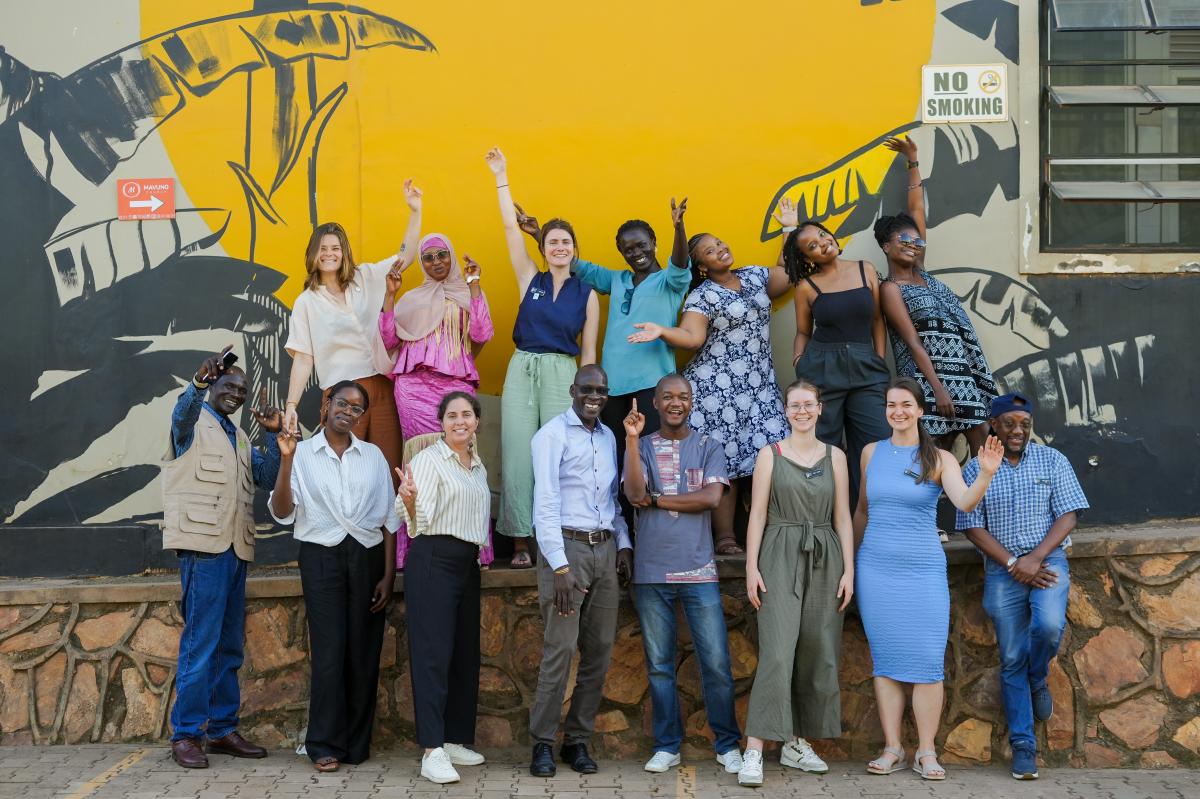
Empowering African innovation: public innovations selected to scale their impact
Alice BONJEAN | 06/06/2025
Through grants and capacity building, the Enabel Innovation Hub enables not-for-profit and public stakeholders to implement data-driven digital solutions to social challenges by bridging digital divides in urban/rural, gender, and youth. Ultimately, the programme improves the quality of decision-making and policy-making using data. Fostering data-driven innovationThe Enabel Innovation Hub, under Team Europe's Data Governance in Africa Initiative aims to identify and support the scaling of Digital Social Innovations (DSIs) in Africa implemented by public institutions, academia, Civil Society Organisations (CSOs), Non-Governmental Organisations (NGOs) and Social Enterprises. The programme began with a Call for Proposals in April 2024, inviting African not-for-profit and public stakeholders to submit proposals for innovations that close existing digital divides/gaps (e.g., urban/rural, gender, youth, etc.) in E-health, digital inclusion, climate change, and governance. 117 applications were received from about 20 African countries by the May deadline. After a rigorous selection process the following public sector DSIs were selected for their strong potential in innovation, societal impact, scalability, and cross-border reach. Aligned with the initiative’s objectives, each selected DSI will have the opportunity to refine strategies, receive technical input to data-challenges, explore sustainable finance and partnerships to scale their project for impact through expert guidance, peer exchange and workshops.Meet the 6 winners supported by Enabel Innovation HubiKnowFarm, Uganda Implemented by Welthungerhilfe (WHH), iKnowFarm is a data-driven app revolutionising agriculture in Uganda through its climate-smart approaches. By providing farmers with real-time insights, expert guidance, and market access, iKnowFarm drives sustainable farming practices and fosters economic growth across Uganda.MICE-RIoT, South Africa Implemented by Planact, the MICE-RIoT (Monitoring Indoor Climate Extremes involving Residents and IoT) project harnesses IoT technology to monitor indoor climate conditions in informal settlements in South Africa. By using wireless sensors, it collects and analyses real-time data on indoor heat levels, empowering residents to address health risks and advocate for improved housing. The system includes community training, data visualisation dashboards, and policy advocacy, intending to influence housing regulations to enhance climate resilience. This scalable, open-source solution combines community-driven insights with technological innovation, promoting sustainable housing practices and improving living conditions for vulnerable populations exposed to extreme heat.Citizen Science for Water Management (Mozambique, Botswana, South Africa) International Water Management Institute (IWMI) ‘s Citizen Science Initiative in the Limpopo River Basin aims to empower local communities to manage their water resources actively. By providing user-friendly tools such as MiniSASS and clarity tubes, along with AI-driven monitoring systems, the initiative enables residents to collect essential data on water quality and flow. This data will be uploaded to a central digital platform, analysed, and integrated into a Digital Twin of the river basin. The insights gained from this real-time data will support decision-makers, improve water management practices, and promote the sustainable protection of this vital ecosystem for future generations.FAIR (Ethiopia, Kenya, Uganda, South Africa) The Europe External Programme with Africa (EEPA) provides interoperable, secure datapods that enable the safe storage and analysis of refugee data, enhancing rapid responses to human rights abuses. Built on open-source technology and aligned with the FAIR principles – Findable, Accessible, Interoperable, and Reusable – these datapods prioritise data privacy and ownership while enabling insightful analysis. Through co-created user interfaces and comprehensive training, EEPA empowers humanitarian organisations to protect vulnerable communities and advocate effectively for their rights.REC Maternity, Guinea Since 2019, Terre des Hommes (TdH) has been deploying a decision-support tool called REC Maternity. This tool aims to improve the quality of care for mothers and newborns. By 2026, the governance of data collected through the use of this tool will be strengthened, enhancing the accuracy of diagnoses, protecting patients, and informing decision-makers. Integrated into the national health system, this initiative prepares for a sustainable and responsible scaling-up of REC Maternity in Guinea and across Africa.RADAR, Benin, Democratic Republic of the Congo Implemented by Handicap International, RADAR is an innovation that focuses on the implementation of the Rehabilitation module within the District Health Information System 2 (DHIS2) in Benin and the Democratic Republic of Congo. This open-source software is customised to collect, analyse, and visualise rehabilitation data, integrating key indicators to strengthen health information systems. By facilitating routine monitoring and supporting data-driven decision-making, the project aims to enhance rehabilitation services. It emphasizes local engagement, the training of healthcare professionals, and alignment with existing health infrastructures and policies, ensuring sustainability and scalability across Africa.
